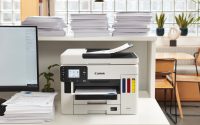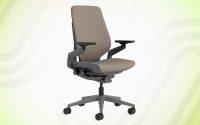Reasons Why Bluetooth Barcode Scanners Are Ideal for Your Business
Posted in Office Equipment By Ben Eliot On June 14, 2022Today, businesses of all sizes are using wireless scanners to increase efficiency and reduce costs. These are reliable portable tools used by a wide range of industries and are all producing favourable results. What’s even more convenient is that you don’t have to be tethered to a computer or other device when using them, as they send the data directly to the software installed on your computer or tablet.
If you want to optimise your workdays, both for you and your employees, get a modern Bluetooth scanner from the array of options available today. They’re durable, shock-resistant, and scan even the most complex barcodes. These state-of-the-art devices are also extremely lightweight, easy to use and eliminate the need for messy cords that often complicate the scanning process.
What are the Advantages of Using a Wireless Barcode Scanner?
With the development of technology, a lot of industries started using barcodes in their day-to-day activities and transactions. These industries include healthcare, home businesses, schools and government organisations. Thie widespread use of these devices has resulted in an increasing need for practical and high-quality scanners.
Similar to their corded counterparts, Bluetooth scanners produce laser beams that scan barcodes with great accuracy. They use beams to produce a light that is passed over the surface of objects to read the black and white patterns that make up barcodes. Once the barcodes have been decoded, the data is then passed to a computer which can be used for further analysis or for storage.
They Can Be Used Anywhere

Wireless scanners are beneficial because you can use them remotely, without needing to connect them to a centralised operating system. They prove to be practical and effective in situations where you need to scan a large number of items over a wide area.
Their wireless connectivity eliminates the need for a long and often tangled cord, which can be both cumbersome and dangerous in certain work environments. Bluetooth scanners are powered by batteries, so there is no need for an external power source. This makes them much more portable than their corded counterparts and ideal for use in a variety of settings, both indoors and outdoors.
For example, you can use them to scan barcodes of items in a warehouse or a retail store without having to worry about being tethered to a power outlet or tripping over cords. You can also take them with you when you travel as they are small and lightweight enough to fit into your carry-on luggage.
They’re Cost-Efficient
Bluetooth barcode readers reduce labour costs and improve the overall workflow in your business, resulting in bigger work efficiency. They enable your employees to scan barcodes faster and with greater precision, which leads to fewer mistakes and less time wasted.
In addition, wireless scanners free up your employees’ hands so they can multi-task and be more productive. For example, if you own a grocery store, your employees can use Bluetooth scanners to scan items and bag them at the same time.
They’re Safer to Use
Another advantage of Bluetooth barcode scanners is that they are much safer to use than their corded counterparts. Cords can be a trip hazard in busy work environments, and they can also get caught on items or other people, which can lead to accidents.
And since they don’t need to be plugged into a power outlet, there is no risk of electrocution if they come into contact with water. This makes them ideal for use in damp or wet areas, such as kitchens and warehouses. Plus, you can keep using them even if there’s a power outage or brownout.
How to Choose the Right Bluetooth Scanner?

Your specific needs will determine the type of Bluetooth barcode scanner you need. Some models may offer features that you don’t need, which can add to the cost. This is why it’s important to take the time to think about what you need before making a purchase. Some of the most common factors you should take into account include:
Scanner Type
Laser, linear, and 2D area imagers are the three most popular types of scan engines. 2D area imagers are the most advanced category, and they can scan all forms of barcodes – stackable, 2D, and 1D barcodes are all included. There are also advantages in terms of speed. When scanning, you don’t have to bother about the barcode’s orientation. The scanner is intelligent and automatically aligns, reducing the pointing that’s required before getting a scan.
The laser scanner measures the blank spaces between barcode bars using a simple red diode. These scanners are more affordable but they only read 1D barcodes. Reflective labelling is frequently required for a wider range of applications.
A linear image scanner, on the other hand, captures a picture instead of using lasers to scan. When it comes to interpreting damaged barcodes, linear scanners tend to outperform laser scanners. At the same time, they have a range and cost that are similar to a simple laser scanner.
Scanner Form
If you’ve ever visited a supermarket, you’ve most likely seen a simple gun-style Bluetooth barcode reader as part of the point-of-sale equipment. The handle is easy to maneuver and the trigger gives you more control over scanning. This simple design is also lightweight and portable, making it ideal for use in a number of different settings.
Other scanner forms, such as wearable or presentation scanners, are designed for specific tasks. A wearable scanner is small and can be clipped to your clothing. This leaves your hands free so you can scan items and carry them at the same time. Presentation scanners are similar to laser pointers, and they are often used in warehouses and retail stores.
About Author
ben



